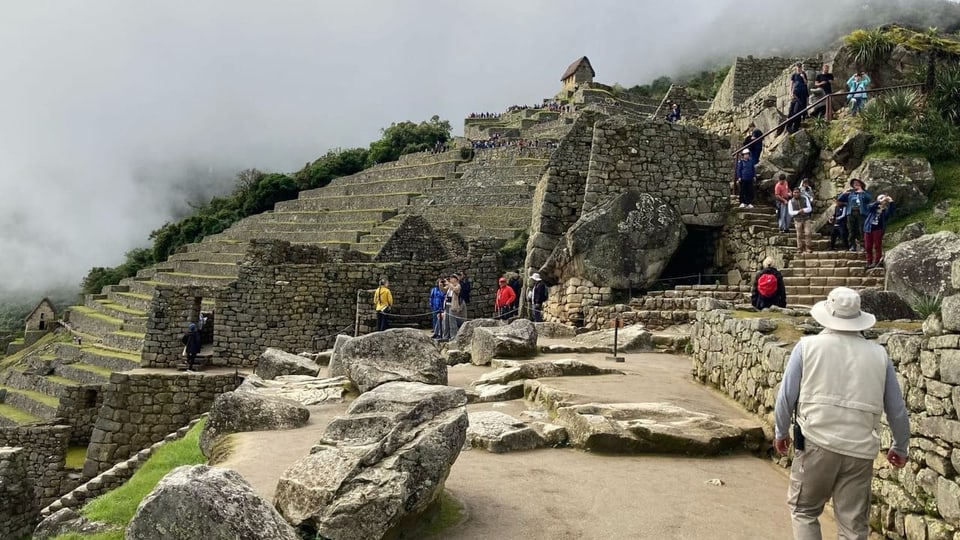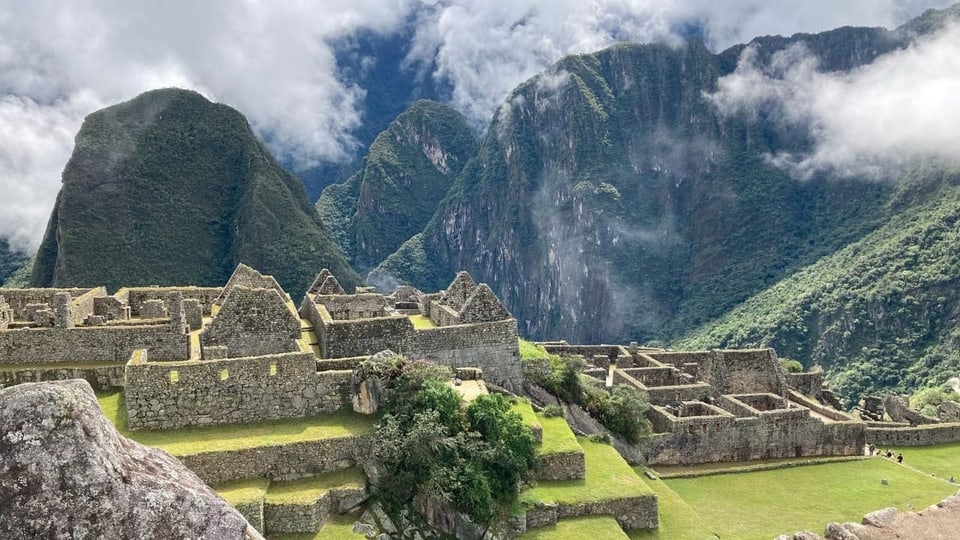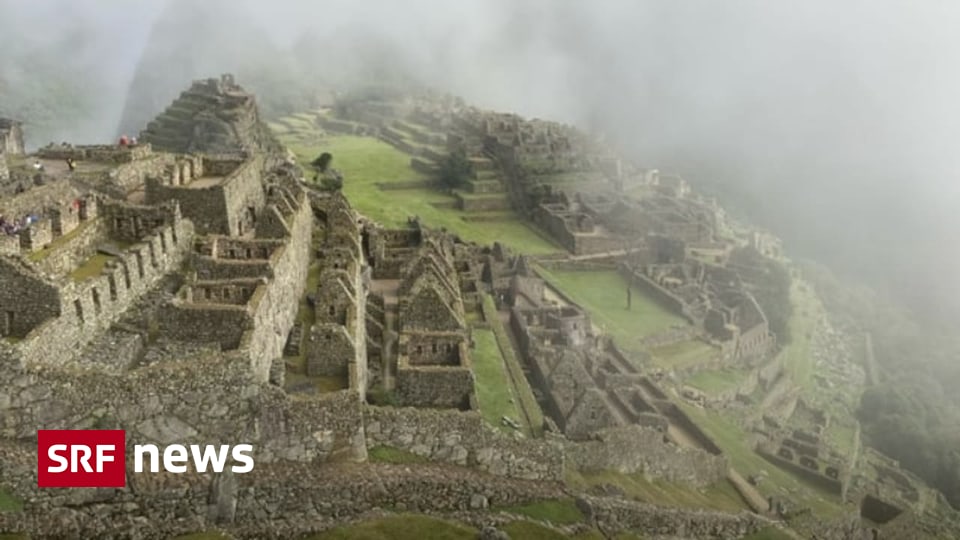The ruins of the 15th-century Inca city are considered one of the Seven Wonders of the Modern World. Located in the Andes Mountains at an altitude of more than 2,400 metres, this archaeological site attracts nearly two million visitors from around the world every year. But the future of Machu Picchu is uncertain.
At the beginning of the year, there were major protests around Machu Picchu: locals feared for their sacred mountain. They shout: “Machu Picchu is not for sale.” The Peruvian Minister of Culture must resign. The protest highlights the political tensions surrounding Peru's most important tourist destination.
Anyone who visits Machu Picchu immediately understands why nearly two million visitors come here every year: the Inca ruins rise slowly and mysteriously from the clouds of mist. Little by little, the entire city becomes visible from the 15th century: houses and temples, built to withstand earthquakes, with stone blocks fastened together.
legend:
Majestic: Inca city at an altitude of 2400 metres
Inca ruins rise slowly and mysteriously from the clouds of mist. Little by little the whole city becomes visible from the 15th century.
SRF/Teresa Delgado
Tour guide Sergio Guevara Shehadeh points out the ruined city. Tourists take pictures next to it. The tour guide says: “We tour guides do not want to fight, we only want justice.” He also took to the streets at the beginning of the year out of concern for Machu Picchu.
“70% of the money we earn here in this protected area flows to the capital, to Lima. Most of it goes to bureaucracy and corruption. That's why we want to manage our income here. In Cusco, in the area where Machu Picchu is located. The reason for the dispute with the Peruvian government is Ministry of Culture decision: It wants to outsource the sale of entrance fees to Machu Picchu to a private company.
Ticket sales should be privatized
“The contract with this company seems unclean,” says tour guide Sergio. “There was no public tender. The Ministry of Culture allows this company to obtain a profit margin of approximately four percent of the tickets sold. This equates to about three million francs per year. They only care about sales, not preserving Machu Picchu. So why does this company make so much money from ticket sales? Why doesn't the Ministry of Culture sell tickets directly itself as before? Why not invest money in conservation instead?

legend:
Popular tourist destination
Machu Picchu is visited by about 5,000 tourists every day. Continuous stress testing of the archaeological site. The corridors and barriers must be regularly maintained to preserve the destroyed city.
SRF/Teresa Delgado
In Transparency International's corruption index, Peru is at the bottom of the middle line – 101 out of 180 countries. “If ticket prices go up or more entrance tickets are sold, the visitors and the mountain ultimately pay for it,” says Sergio. Nearly 5,000 people visit Machu Picchu every day. Tour guides, including Sergio's colleague Adriel Vilkas, fear that if there are much more, the archaeological site could be damaged. He speaks Quechua, the language of the Incas, and explains: “It is from this region, from Cusco, that our ancestors, the Incas, ruled large parts of South America from the 13th to the 15th centuries. We have to take care of this legacy.”
A mountain that belongs to the world
The Peruvian government promised dialogue with the local population. When Sergio Guevara was asked about this, he waved Shehadeh away. “Machu Picchu has been listed as a UNESCO World Heritage Site since 1983. This mountain does not just belong to the Peruvian government. “This mountain belongs to the world, so we hope that the tourists who come here from all over the world will defend Machu Picchu and put pressure on the Peruvian government through their embassies in Lima.”

legend:
Locals hope for support from tourists
The tourists in the bottom right of the photo look small compared to the great Inca buildings. Locals hope tourists will support the preservation of Machu Picchu.
SRF/Teresa Delgado

“Tv specialist. Friendly web geek. Food scholar. Extreme coffee junkie.”






More Stories
Patriot air defense system: Should Switzerland wait longer for Ukraine's sake? -News
Boeing 777 causes delays at Swiss Airport
Hitler Beetle can keep his name